Bri. Late 20s, She/Her. Humanist. Political Staffer. Masters of Public Policy Graduate (Foreign Policy/Human Rights focus). Reader, Writer, Comics fan (Mostly Batfam and Wonderfam, especially Dick Grayson and Cass Cain). This is a fandom blog, with some politics, social issues, and personal things scattered throughout.
Don't wanna be here? Send us removal request.
Text
Chat, is it considered “abusive roommate behavior” to release a raccoon into the living space after you have asked your roommate for months to please clean up their messes (they do not pay any of the mortgage)
29K notes
·
View notes
Text
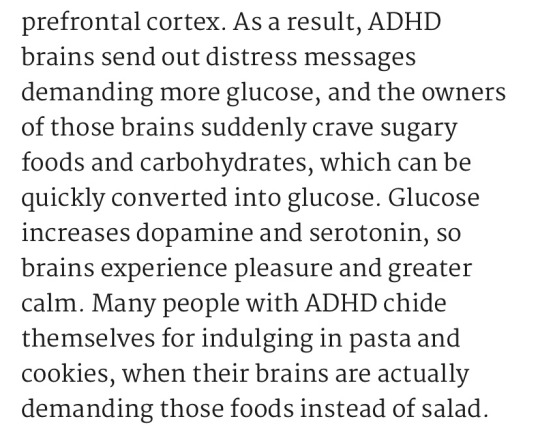
UH WHAT
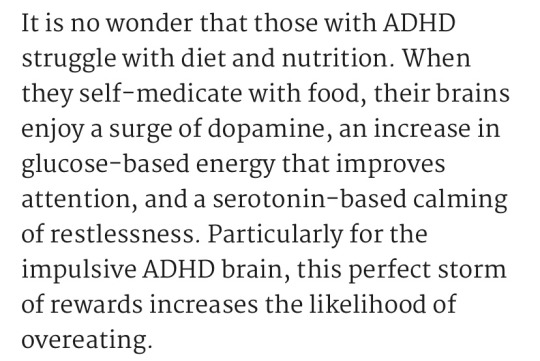
UH...... WHAT.........
#ohhhhhhhhh I hate knowing this actually#let me enjoy my pasta and chocolate in peace without thinking about how it's a symptom#adhd posting
122K notes
·
View notes
Text







MACGYVER 1.03 "Awl"
142 notes
·
View notes
Text






MACGYVER 1.20 "Hole Puncher"
124 notes
·
View notes
Text



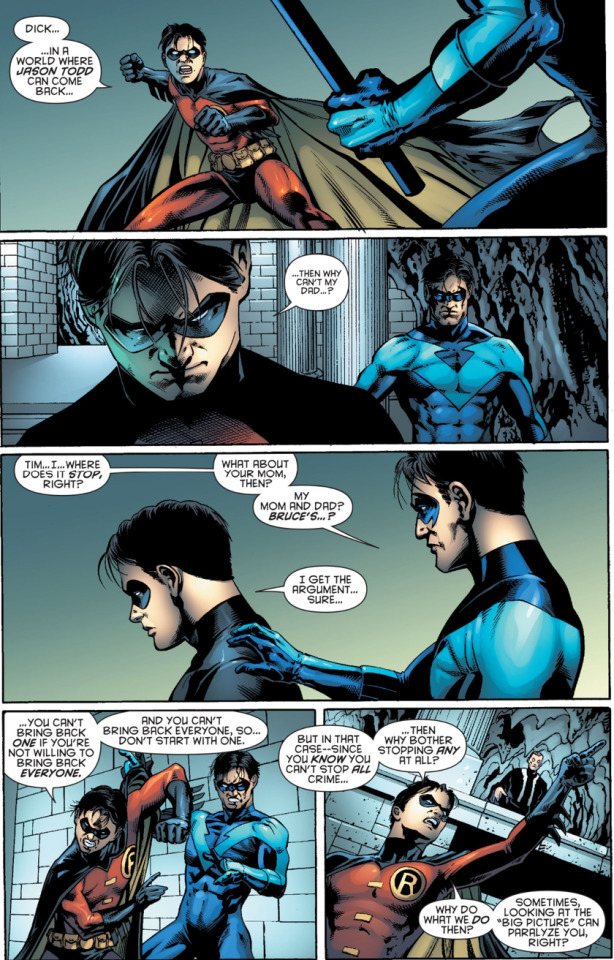

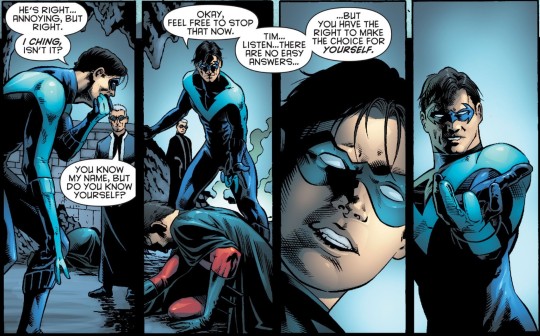
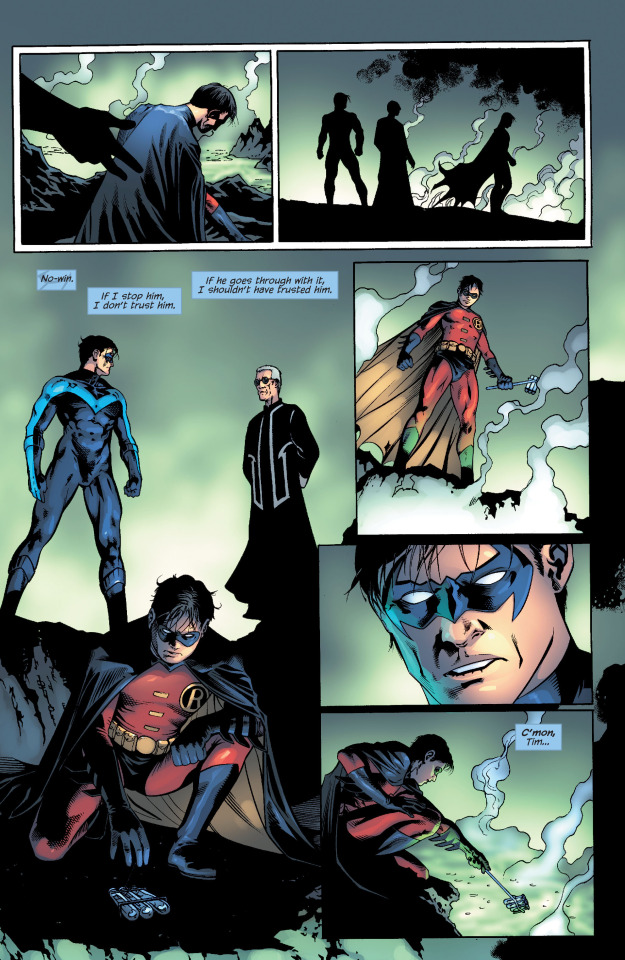


no thoughts, head empty, just crying over Dick and Tim's fight at the Lazarus Pit in Resurrection of Ra's al Ghul again
Bonus: Dick's unwavering devotion to and love for his younger brother:

#it's been a whole five months since I've thought about Resurrection of Ra's al Ghul and I am BACK ON MY BULLSHIT!!!!!#so I'm reblogging my old meta post again#og tags->#a portrait of me reading Resurrection at any given time: just endless waterworks over Dick and Tim#also as a bonus: during the final fight in Nanda Parbat Dick tries to get Tim to leave because he KNOWS it's a suicide mission#and he wants Tim to leave and live even if he and Bruce are willing to stay and die fighting#I love them and would die for them actually#dick grayson#tim drake#dc comics#long post#brotp: a thousand ninjas is just the start of what I would do
552 notes
·
View notes
Text
i love how suzanne just gives us a little treat by mentioning the katniss plant every book. like here u go. ik u miss our girl. she's fine. enjoy lowercase katniss
5K notes
·
View notes
Text
Stephanie Brown and sewing: the discontinuity in canon skill
One of the points that is often brought up to contrast Bryan Q. Miller’s Batgirl 2009 run with pre-War Games Steph is BQM’s depiction of Steph as unable to sew in Batgirl #1 2009, in contrast with Chuck Dixon’s depiction of her sewing her first costume in Secret Origins 80-Page Giant #1 1998.


I think it’s interesting to contrast the default assumptions inherent in ‘Steph can/cannot sew’ for both periods, and also look at what the skill would say today about her as a character.
Dixon from her origin in 1992 portrays Steph as having sewn her own costume and as a member of Gen X. (Well, he doesn’t specify that she made it until he writes her Secret Origins in 1998, but it probably formed part of her origin story in his mind from the very start). In that time period, it’s not unlikely that Steph may still have been taught to sew at school and to be assumed by readers to have learnt at school; while sewing and home economics classes were in the process of being removed from the US school curriculums over the late 1970s and the 1980s, in 1992 that would still be very recent news and in particular, adult readers and writers would likely still have expected it to be a skill that a teenage girl would have learnt, either at school or from her mother. Dixon in particular was born in 1954 and probably finished school in the very early 1970s, before this change in curriculum occurred, so his default expectation would have been that Steph had the opportunity to learn.
On top of this, in the late 1980s and early 1990s it was still financially viable for lower middle class families to be sewing particularly children’s clothing and women’s dresses to save money; the cost of fabric v the cost of premade clothing was such that there were still savings to be made by running up simple clothes at home if you discounted the labour costs of the woman doing that work. In this context, Steph being able to sew her own costume is something that allows Dixon to portray Steph as thrifty and hardworking and the ‘good’ sort of lower middle class.
In this context, Steph sewing makes her look competent and well educated, but also pitches her in the position where she is visibly less well off and less well resourced than Tim is: she is able to solve the problem of needing a costume by creating her own at home (similar to how Barbara Gordon, in most origin stories, sews her first Batgirl costume AS a costume party outfit), rather than having one gifted to her by Bruce.
In contrast, by BQM’s Batgirl 2009 run, the likelihood of a teenage girl having the skill to sew a complete outfit has significantly dropped. My best estimate of BQM’s age is that he was likely born in the 1980s, a full generation later, and is writing a teenage girl who is similarly presented as an entire generation younger and a Millennial. For this version of Steph, sewing is an old fashioned, unfashionable skill that she would have been unlikely to learn at school. To learn how to sew she would either have required a special interest or an involved mother or other older relative who specifically wanted to teach her; and Crystal Brown is not portrayed as someone who had the free time to be teaching hobbies to her daughter. The economics of sewing have also flipped at this point. Buying clothing was cheaper and easier than sewing them personally, and it would be extremely unlikely to see a teenager wearing homemade clothing.
On top of that, we have BQM’s characterisation of Steph. His Steph is Not Like Other Girls ™ - she’s specifically shown to be cool and rebellious in ways that are depicted via things like looking down on clothing/behaviour that is ‘girly’, wearing male style clothing like combat fatigues as part of her university clothing to portray that she’s above caring about her appearance, but still having those ‘when she wears a dress she looks feminine/beautiful’ moments. It’s a very trendy portrayal of a teenager who is simultaneously trying to appear not to be trying too hard while actually privately overthinking everything.
Finally, both of these reads of what Steph being able to sew or not means have different interpretations in the present day.
From my current understanding, design and sewing classes have largely been out of the US school curriculum for decades at this point. The most common encounters that a modern member of fandom would have with sewing clothing is the in the context of cosplay, whether that be for fandom costuming (such as sewing your own Batgirl costume for a party like Barbara), or in terms of the Bernadette Banner style of elaborate historical recreations, where the hobby is both the recreation and in doing everything the hardest and most elaborate way possible. It is not something most people would do for actual pieces in their wardrobe (as the economics of sewing are still upsidedown in terms of materials to premade). A current teenage or early 20s Steph is a member of Gen Z, another generation on.
Because of this frequent lack of familiarity with the skill of sewing in the general audience, there is no longer an default expectation that Steph would be able to sew. If she was able to sew, it would be perceived as a particular hobby of hers for some purpose (probably cosplay, to give her a fandom-aligned hobby to seem ‘cool’), rather than an expected skill she acquired in the course of her education, whether at school or from her mother, for the purpose of running a household and general maintenance tasks. Particularly in terms of being able to put together an entire costume, or modify another costume to fit herself; those are higher skill levels than sewing on buttons or tacking a hem.
Interestingly, both portraying Steph as able to sew AND as unable to sew now have different readings to them compared to the two contemporaneous commentaries available in 1992 and 2009, when it was previously addressed in canon. It would be interesting to see it addressed again by a writer, to see which angle they take.
188 notes
·
View notes
Note
Is superboy (1994)….a good comic? I want to read more kon stories outside of yj98 but I have heard profoundly mixed things about his solo
I have not read it, so I can't give an honest assessment of it either way. Sorry!
7 notes
·
View notes
Text
lol ask and ye shall recieve! I got a matched leaf patterned silver necklace-earring set and an additional pair of earrings!

just got $175 worth of jewelry for $45 today so I think I'm winning
33 notes
·
View notes
Text
just got $175 worth of jewelry for $45 today so I think I'm winning
33 notes
·
View notes
Text



PRIDE AND PREJUDICE (2005) + Joe Wright’s DVD Commentary
1K notes
·
View notes
Text
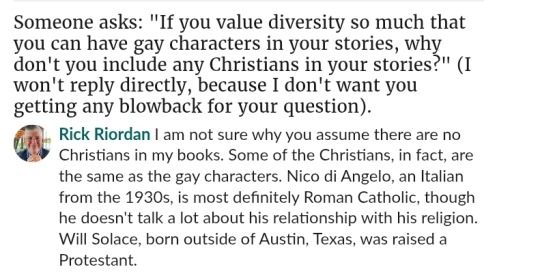
APPARENTLY RIORDAN CONFIRMED SOLANGELO'S RELIGIONS AT SOME POINT?
#CACKLING#I actually think it would be funnier if Nico was still technically a practicing Catholic but only bothers going to mass on high holidays#nico di angleo#will solace#solangelo#pjo
4K notes
·
View notes
Text
Remember that time Green Day took MCR to the cinema
#of course they are#OF COURSE THEY ARE#gerard way#bille joe armstrong#green day#my chemical romance#also this is your semi-annual reminder that Gerard Way recruited NK Jemisin to write Far Sector!#that man is a GEEK and proud of it
12K notes
·
View notes
Photo

I drew this when the show was green lit and now it’s actually here and I’m having a lot of feelings<3
439 notes
·
View notes
Text
The fun thing about The Zillo Beast Strikes Back episode is that there are about eighty seven different ways it could be turned into a fix it au. For example:
Space PETA finds out about all of this and tries to get Palps thrown out of office, exposing him as a Sith Lord
Palpatine's pissed off constituents and co workers, after nearly dying for a science experiment, try and get him thrown out of office, exposing him as a Sith Lord
Palpatine's guard says screw this and leaves him to get eaten
R2 leaves Palps to get eaten
Ezra Bridger gets thrown back in time, sees a massive beastie trying to eat Palpatine, goes "oh he gets me" and becomes best friends with the Zillo Beast and also kills Palpatine, therefore becoming Mace's favorite member of his lineage
Padawan Cal Kestis heard about this and goes "ANIMAL RIGHTS" and Jaro Tapal decides to use this as a teachable moment about civil disobedience. Palpatine's death is just an ancillary benefit of Cal getting a cool new pet
C3PO sues Palpatine for emotional damages, and Palpatine gets so angry in court that he outs himself as a Sith Lord
Literally just. The Zillo Beast eats him. Is that so much to ask?
Feel free to add more and/or use any of these as fic ideas if they don't already exist!
1K notes
·
View notes
Text
okay GENUINELY romeo and juliet should have been at the club
9K notes
·
View notes
Text
Six of Crows Character Design Notes
Character design notes for my most recent character lineup for The Crows! I did this last time for the super old ones I did right after I read the series, so these new ones are much closer to how I imagine them. There probably will be a good amount of rehashing from the old notes, but I hope you enjoy these nonetheless!

Kaz and Inej
Closest in color scheme due to how close they are at the start of the series, though there is a difference between the purples. Kaz's purple accents are light and muted (similar to the color of Kruge). Inej's tunic is more indigo, shifting away from the warmer purple she wore at the Menagerie. After she realizes her dream in the incinerator shaft, I imagine her theme color changing to dark blue, then dark teal by the end of the series.
I often see Kaz in a red tie, but he had to wear something different for my design since him and Van Eck would basically be in the same outfit. His black shirt is also meant to distinguish him from the real merchant class.
Coin added to Kaz's pose to refer to his magician and thief personas (and a callback to his backstory)
Their vests symbolize their morality. Kaz's is asymmetrical ("crooked and wrong...") while Inej's evenly goes down the center (more balanced and true to herself).

Jesper and Wylan
They're meant to contrast each other, since they don't exactly see eye-to-eye at the start, but their similarities are important. Both have patterned elements, brown leather boots, and freckles. My favorite differences: vibrant vs muted, gold vs silver, open vs closed poses
Jesper has freckles just because I feel like they suit him but also as a visual connection to Jordie. :)
Wylan is holding a Victorian fire grenade! They were actually used for extinguishing fires back then, but I can imagine Wylan replacing the ingredients to do the exact opposite.
I used to draw Jesper in a longcoat just because that look from the show is so iconic, but I changed it to something more cropped. The shorter coat makes him look taller and differentiates his silhouette from Kaz's.
Wylan's black vest is meant to hint at his merch family ties.
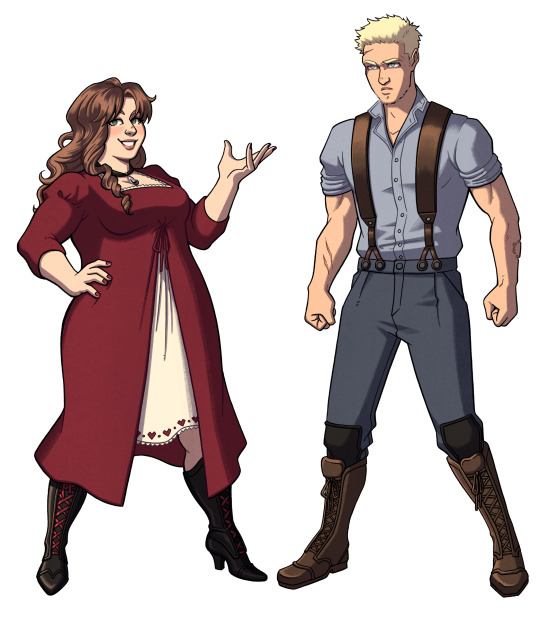
Nina and Matthias
Another couple who clashes through color palette! Nina's Heartrender red vs Matthias's northern blue. They also differ in leather color (black vs brown).
Matthias was a bit harder to design since he's not wearing clothes that he'd pick out himself. These are whatever Kerch dockworker clothes the gang could find for him, but I feel like they suit him enough to convey his personality.
Nina's necklace pendant is teardrop shaped (The Queen of Mourning).
Nina is wearing makeup and nail polish. From my limited research on Victorian culture, this was seen as improper, but I think that fits Nina's boldness all the better. I don't try to make any of my designs authentically Dutch Victorian (It's a fantasy series after all! Why not make semi-anachronistic designs that value personality over accuracy?), but it is fun to think about how these characters would be interpreted with that lens.
#oh this is DELIGHTFUL#six of crows#kaz brekker#inej ghafa#jesper fahey#wylan van eck#nina zenik#matthias helvar#queue
391 notes
·
View notes